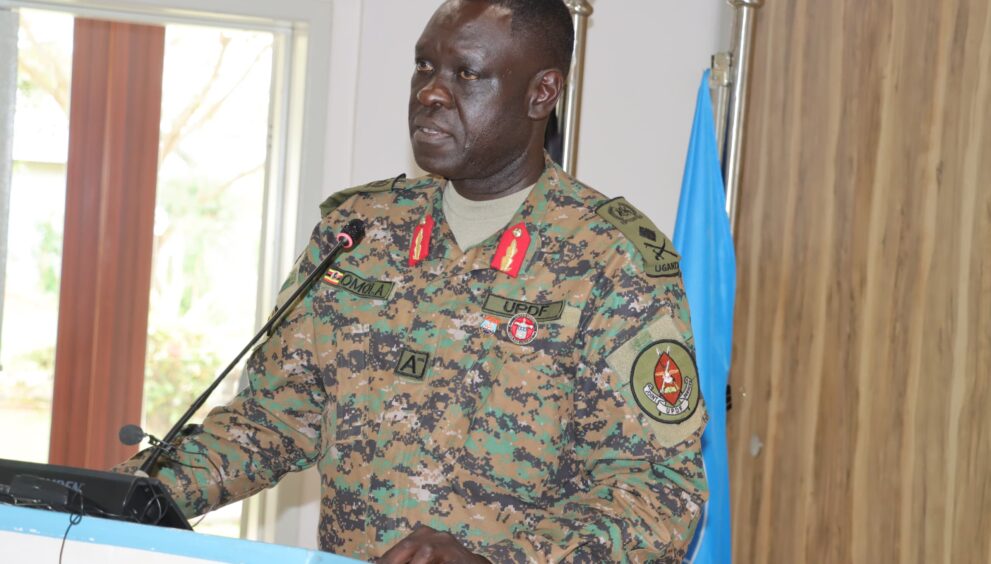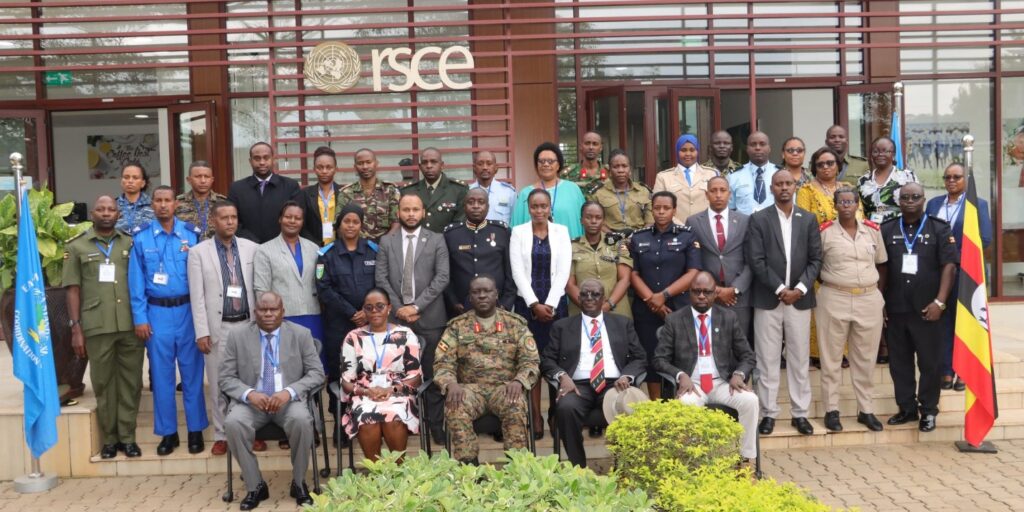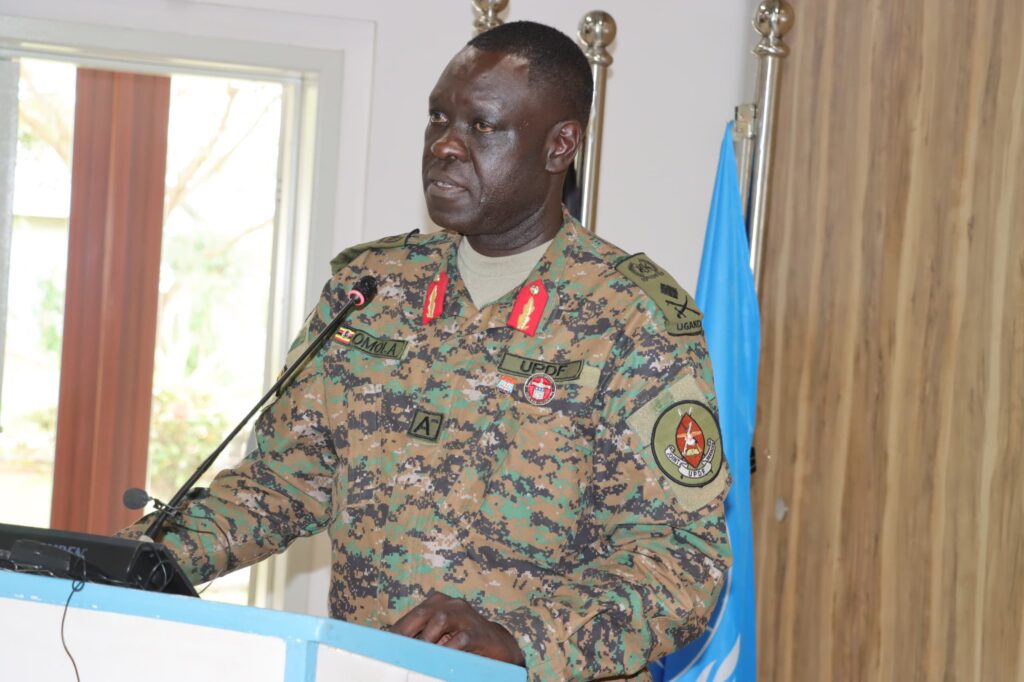Eastern Africa Standby Force Launches Specialized Training to Protect Children in Armed Conflicts

The Eastern Africa Standby Force has launched a course to enhance member states’ ability to protect children in conflict zones. The training brings together military, police, and civilian personnel from ten EASF nations, focusing on equipping them with skills to address child protection challenges in line with international standards.

The Eastern Africa Standby Force posing for a photo at the United Nations Regional Service Centre in Entebbe, Uganda.
The Eastern Africa Standby Force (EASF) has inaugurated a specialized course aimed at strengthening the capacity of member states to protect children in conflict zones. The course, titled “Children and Armed Conflict,” is being held at the United Nations Regional Service Centre in Entebbe, Uganda. It seeks to enhance the skills of military, police, and civilian personnel from ten EASF member nations to address child protection challenges in conflict environments.
Brigadier General Peter Gaetano Omola, Commander of the Uganda Rapid Deployment Capability Centre, underscored the severe impact of armed conflicts on children, including forced recruitment, violence, and exploitation. “As representatives of nations committed to peace and security, we have a collective duty to protect these vulnerable members of our society,” Brigadier General Omola stated during his opening remarks.

Brigadier General Peter Gaetano Omola, Commander of the Uganda Rapid Deployment Capability Centre
The course, attended by participants from countries such as Burundi, Ethiopia, Kenya, and Uganda, focuses on equipping personnel engaged in peace support operations with the knowledge and skills required to address child protection issues in accordance with international standards. Lead facilitator Anthony Ombara stressed that protecting children is both a “moral and legal obligation” and called on participants to take action to shield children from the atrocities of war.
Allen Ruhangataremwa, representing the EASF Secretariat, highlighted that the course aligns with both regional and international child protection frameworks. It aims to equip personnel to prevent and respond to violations against children in armed conflict zones. This initiative follows a recent report by the Special Representative of the Secretary-General for Children and Armed Conflict, which pointed to serious breaches of international humanitarian law, disproportionately affecting children.
Participants from all ten EASF member states, including Somalia, Sudan, and Rwanda, will complete the training with enhanced capabilities to support child protection efforts in future peacekeeping missions.







